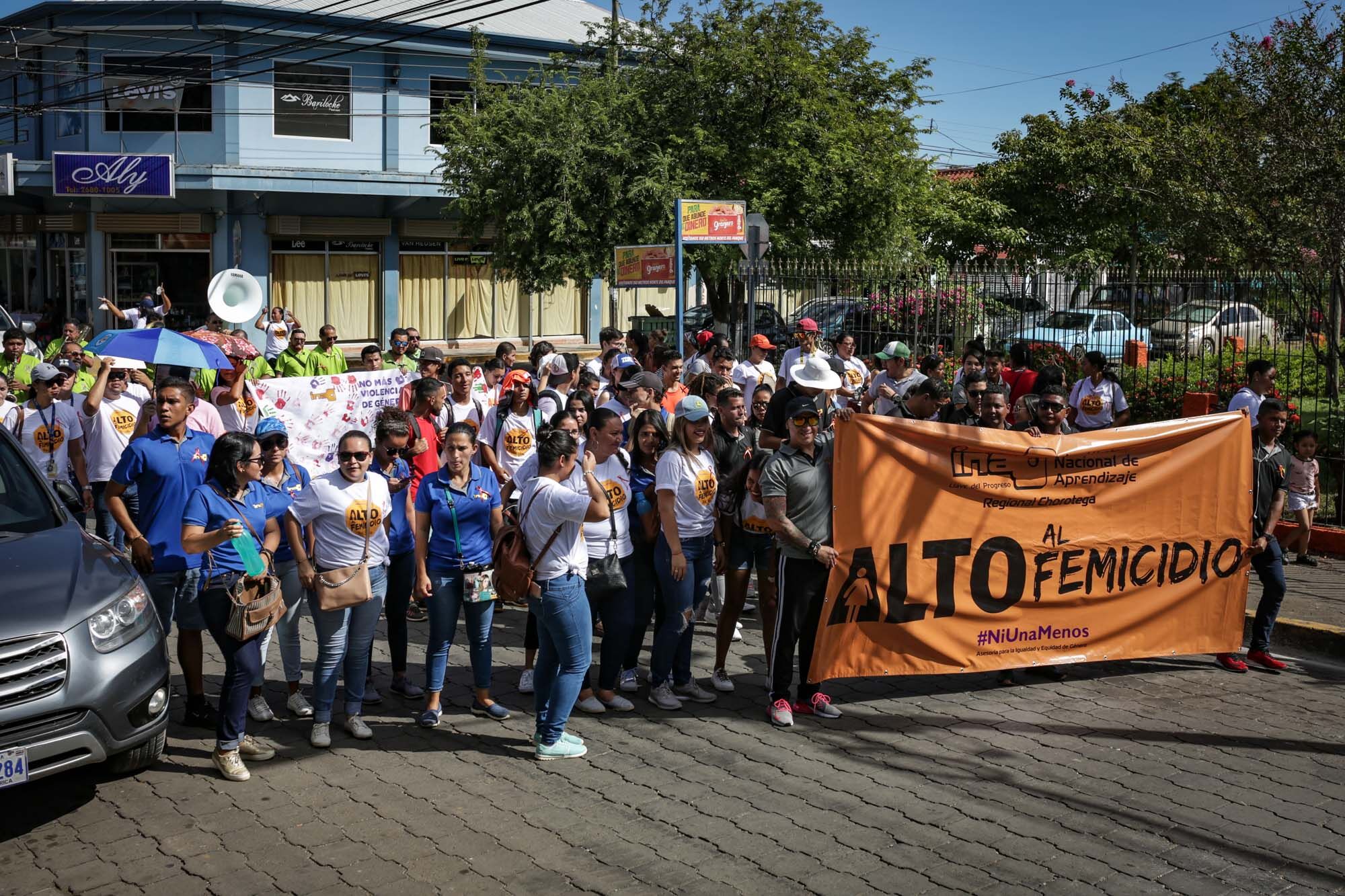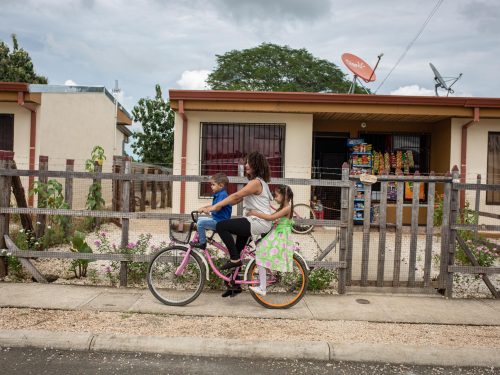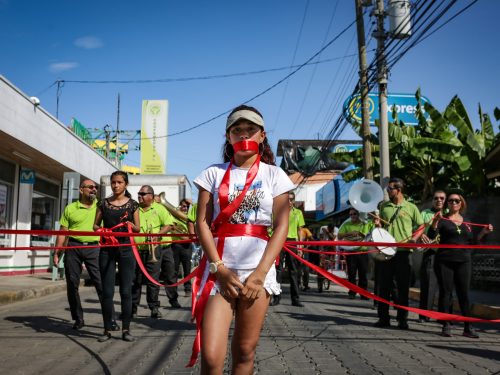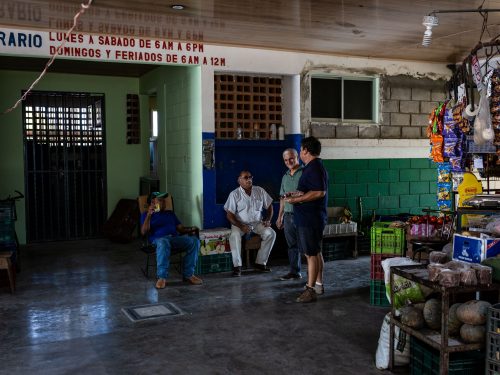
On Monday, March 30th, at the Government’s daily press conference, the Minister on the Status of Women, Patricia Mora, appeared for the first time in that space, saying: “This crisis affects women in particular…” Immediately, machistaremarks invaded the live broadcast on Facebook.
“This virus is not gender-based”, “shut up, shut up that you are making me desperate (sic)”, “turn off (sic) the mic please”, “it’s unnecessary that lady being there is unnecessary”. And so, dozens of reactions.
Mora’s intervention would conclude with a response that, without context, would end up proving to those who wrote that the authorities were dealing with an unimportant issue.
One media asked whether the National Institute for Women (INAMU) reported an increase in complaints of domestic violence since the emergency. Mora answered: “The increase has been very slight until today [March 30th]. In the daily tracking of the number of reports, asking for help because they are suffering a violent situation, is not noticed.
But are these statistics from Inamu sufficient to conclude that the pandemic has not caused more gender-based violence in the country?
The Chorotega regional director of Inamu, Mélida Carballo, assures that it has not. According to her, even if complaints do not increase, the institution has the premise that a woman who is at home with her aggressor can hardly contact the institution or report it.
In other words, physical, sexual and/or psychological violence may be occurring, without the statistics reflecting this.
That is what we call the silences of violence. We cannot say that the violence has gone down but it is contained in the homes,” Carballo added.
Patricia Mora, the head of Inamu, follows the same criteria and although she did not express it during the conference, she assured through an official statement: “We know that, in conditions of isolation and confinement, women can suffer more violence and have more difficulties to call and report because in some cases, the aggressor can be at their side 24 hours a day”.
The UN Office for Women in the Americas and the Caribbean also warned last March of the increased risks of domestic violence against women and girls in the context of the emergency due to greater tensions in the home.
“Survivors of violence may face additional obstacles escaping violent situations or accessing protection orders and/or essential life-saving services due to factors such as movement restrictions or quarantine,” the organization warns on a recent report.
Few facts
On a national level, calls received to the 911 helpline for ongoing domestic violence [currently happening] show that the average daily call in January was 317, in February 316 and in March 307.
If the data is compared with those reported in 2019, during the first quarter of this year, the average daily call increased by 9%.
In addition, as of April 11th, 2020, the average number of calls per day (322) had already surpassed the one from the entire month of April 2019 (316).
The statistics include aggressions to both men and women, however; the institution assures that the majority of calls have a woman as a victim.
Furthermore, the statistics do not mention the causes of the increase, so it cannot be said such cases respond only to the measures taken during the COVID-19 emergency, but it can be used as an element of analysis.
In Guanacaste, the number of domestic violence calls also shows a slight increase. While in March 2019 the 911 line reported 670 calls for that incident, in the same month of 2020 the number rose to 692 (a 3% increase).
On the 17th of that month (March), the country declared a state of national emergency and urged all public and private workers who could work from home to do so.
If the data are analysed by canton, Liberia, Santa Cruz and Nicoya have the highest number of incidents.
Carballo estimates that 60 percent of the women who participate in the Inamu training groups in Guanacaste (about 1.800 a year), say they suffer some form of violence.
The media also requested information from the Public Force on the number of arrests for domestic violence or direct aggression against a woman for the months of January, February, March and April of 2020 and 2019 in Guanacaste. In addition, we asked for the number of phone calls received for the same reason during the same dates. At the time this information was published, the institution had not sent the data.
Help available
Carballo also explained that the situation of violence against women is aggravated during periods of isolation or even during school holidays because freedom of transit is one of the first things an aggressor restricts for the person being assaulted.
It is common for the aggressor to ask where you are going, or to insist on asking who you are calling, for example,” she said.
For that reason, the institution adapted the way they impart knowledge to their women’s human formation groups in the province and now they meet through WhatsApp. One of the goals of the meetings is to identify women who are in violence circles and provide them with help.
The institution runs 27 groups of 37 women (about 1,000 women in total) that before the pandemic met face-to-face for four hours once a week.
The groups also discuss issues of patriarchal society, leadership and human rights.
911, courts, Inamu and offices on womens’ matters are some of the allies for those who suffer aggression and for their loved ones.
Carballo recalled that even with the pandemic, Inamu’s offices in Liberia continue to operate Monday through Friday from 8 a.m. to 4 p.m. and, in addition, all of the institution’s phone numbers are redirected to the cell phone numbers of the staff members for emergencies at all times.
If a woman is facing a high-risk violence situation, she should call 911 immediately, the call is free, confidential and 24 hours a day, seven days a week.
The director of the 911 Emergency System, Guiselle Mejía, explained that when a domestic violence call enters the system, the operator sends the code to all the interconnected institutions (11 in total, including Inamu, Public Force, and the Red Cross).
If a major crime or injury such as a femicide occurs, our platform is a source of judicial information, which is why reporting it is so important,” the director said.







Comments